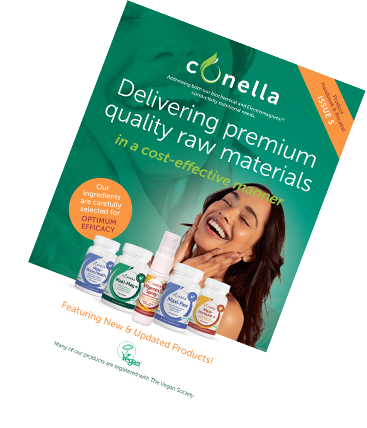Selenium is essential for humans, yet it is a nutritional element that receives little publicity.
It is also something that can be deficient in modern diets, due to inadequate levels in the soil that underpins our food chain.
This is highly significant, as selenium deficiency can have a negative effect on many aspects of your health. Including potential heart and thyroid issues, for example. There is experimental evidence that suggests too little of this micronutrient can increase the risk of cancer and age-related cognitive health issues too.
What is selenium, what does it do, and why do we need to increase the amount of selenium we consume?
This article answers these questions and also looks at whether selenium supplements offer preventative and treatment options for widespread health issues.
Basic information about selenium
Selenium is a trace element – also referred to as a micronutrient - found in a diverse range of foodstuffs.
The science behind Selenium is this. It has two forms, which are inorganic (known as selenate and selenite) and organic (selenomethionine and selenocysteine)
Both are good dietary sources of selenium.
A lot of the selenium we consume comes from plant-based foods, as soils contain selenites and selenates. These build up in growing plants and are converted to the organic forms of selenium. It then gets into the issues of the animals we use for food.
Therefore, natural sources of selenium include meat, as well as dairy products, nuts, whole grains, garlic, onion and other vegetables.
However, the quality of soil used to grow crops can impact on whether our diets contain sufficient levels of selenium. More on this later.
How much selenium does your body need?
What is the RDA of selenium? The recommended dietary allowance of selenium varies according to age. As it is also closely tied to reproductive health, you may also need to increase your intake when pregnant.
Generally, the UK RDA for selenium is 75 μg/d for adult men and 60 μg/d for adult women.
Are we getting enough in our diet? According to one academic paper on this topic, “dietary selenium intakes in the UK have fallen over the last 20 years and recent surveys indicate that the average selenium intake may be as low as 30–40 μg/d.”
Vegetarians, Vegans and the elderly are at particular risk of having too little of this micronutrient in their diet.
Can you consume too much selenium?
Like many of the important nutritional elements we discuss on this website, the target should be to get the recommended daily amount, or optimum levels of selenium, as too little can lead to health issues over time.
However, it is possible to err in the opposite direction. Too much in your system can lead to selenosis, a level of toxicity that results in symptoms such as hair loss, nausea and headaches. In its severest form, it can cause respiratory and heart problems.
Selenium health benefits
Selenium is a substance that has many biological roles and advantages. Including playing a part in reproduction, DNA synthesis and thyroid hormone metabolism.
Possibly the best-known benefit of selenium is that it is one of the powerful antioxidants, and therefore protects our bodies from oxidative damage and infection.
Selenium and antioxidants
The term 'antioxidants' is used a lot, but not everyone understands what they do and why they are so essential to a diverse range of health matters. Also, the fact that selenium is an important antioxidant warrants further explanation.
So, what does an antioxidant do?
Time, exposure to the environment and lifestyle choices such as smoking influence your biological structures and functions. You get a build-up of free radicals, the term used for unstable atoms that lead to cell damage, the appearance of ageing, and increased vulnerability to disease.
A build-up of free radicals creates oxidative stress. This has been proven to be a process that paves the way for chronic and degenerative illness. Including cancer, rheumatoid arthritis, respiratory issues and cardiovascular and neurodegenerative diseases.
As one research paper points out: “In a disease such as Alzheimer’s, numerous experimental and clinical studies have demonstrated that oxidative damage plays a key role in the loss of neurons and the progression to dementia.”
Your body fights oxidative stress by producing its own antioxidants. However, it also relies on gaining these from nutritional sources. Leading to an indisputable tie between what you eat and your ability to enjoy a healthy immune system, for example.
Different nutrients – including selenium - are unique in their antioxidant function and role in combating free radicals. Therefore, your body needs a constant supply of a range of types, including selenium, to protect your health on a cellular level.
Selenium and health issues related to ageing
Reference has already been made to the way selenium combats oxidant stress, and therefore the ageing process in cells. Let’s now explore how selenium affects age-related cognitive health.
Keep in mind that as we get older, our body’s ability to collect, store and even use nutrients declines. Making purposefully and balanced nutrition even more vital.
This decline includes the selenium concentration we hold. According to one medical selenium guide for health professionals “Marginal or deficient selenium concentrations might be associated with age-related declines in brain function, possibly due to decreases in selenium’s antioxidant activity.”
There are countless ongoing studies worldwide to find the causes of conditions such as Alzheimer's Disease and to find ways of preventing cognitive decline. Or even reversing dementia! Many of these use a mixture of nutrients (especially a mix of antioxidants) to see if that stops or slows age-related cognitive decline.
Strong evidence is emerging that selenium plays a role in the natural remedies that reduce the risk of cognitive impairment as we age.
(We will be watching further research on this topic and reporting back to you, of course!)
Selenium and thyroid function
This is another biological function that explains why we need a selenium-rich diet.
The concentration of selenium in our thyroid gland is greater than in any other organ. That’s because, alongside iodine, selenium is vital to thyroid hormone metabolism and synthesis.
Can a healthy amount of selenium reduce the risk of thyroid disease and malfunction? Research into this has not yet produced a definitive answer. However, the fact that selenium is so important to thyroid function means you can be sure investment is being made into studying the positive impact of this micronutrient!
Selenium and heart disease
Antioxidants like selenium play a key role in protecting your cardiovascular health. They have an anti-inflammatory effect and support healing and regeneration at a cellular level. Selenium is also one of the micronutrients that prevent blood platelets (cells) from clustering and clumping together.
This adds weight to the argument that making sure you have enough selenium in your diet – or taking relevant supplements – reduces your risk of cardiovascular disease, with its potentially fatal consequences. This topic – as with many interactions between nutrition and health – requires more in-depth research.
Purposeful nutrition, health and selenium
Clearly, the value of ensuring you get enough selenium in your diet is indisputable. It is also simple to achieve. For example, one of the best sources of selenium is Brazil nuts. Eating 6-8 nuts a day will ensure you get the daily amount of selenium needed.
Focusing on this as part of a carefully balanced diet is necessary, as you can't take it for granted that all the meat, dairy, whole grains, fruit and veg you eat provide the NRV of selenium. The amount in the soil varies from place to place, making it hard to judge if local foods contain enough.
You certainly need to be aware of selenium deficiency if you follow vegan or vegetarian diets.
As medical science advances, it is becoming clear that getting sufficient selenium on a regular basis provides general health benefits. Plus, evidence is emerging that it could also reduce your risk of some illnesses, and age-related cognitive decline.
What can you do if you are concerned your diet is insufficient for this important nutrient?
You can buy selenium in multivitamin/multimineral supplements and selenium-enriched yeast for example.
For more information on the role nutrients play in preventing and treating diseases, please check back with this website regularly.
Sources:
https://www.healthline.com/nutrition/selenium-benefits
https://ods.od.nih.gov/factsheets/Selenium-HealthProfessional/
https://www.nhs.uk/conditions/vitamins-and-minerals/others/
https://www.news-medical.net/health/Selenium-Toxicity.aspx










